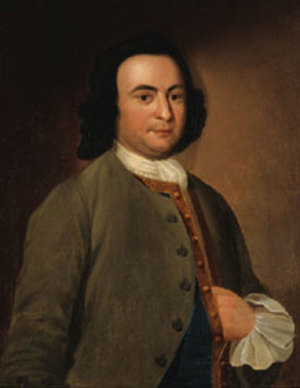George Mason IV was a man whose ideals and convictions played a major role in the shaping of the United States Constitution as we know it today. He was one of the founding fathers of the United States of America and one of the first influential American leaders to be concerned with the right’s of men. He stood by his convictions on this topic, regardless of possible consequences or social stigmas.
George Mason the IV was born on December 11, 1725, in Fairfax County, Virginia. He was the first son of the three children born to George Mason III and Ann Thomson Mason. When George was only 10 years old, his father drowned in the Potomac River when he was involved in a boating accident. Ann raised the couple’s three children from then on and saw to it that young George received an education from tutors and in a private academy in Maryland.
George Mason IV received his inheritance when he turned twenty-one. His inheritance included the family’s plantation home in Fairfax County, called Gunston Hall and roughly twenty-thousand acres of land. This put him among the wealthiest plantation owners in Virginia. He owned slaves on his plantation, but was known for his support of the abolishment of slavery. This would play a large role in the political career that he later entered into, reluctantly.
In 1750 George married Ann Eilbeck, who was 16 at the time. It is said that Mason loved his wife very much. They had 11 children together, George V, who was born in 1753, Ann, who was born in 1755, William, who was born in 1756 and died in infancy, William, who was born in 1757, Thomson, who was born in 1759, Sarah, who was born in 1760, Mary, who was born in 1762, John, who was born in 1766, Elizabeth, who was born in 1770 and a set of twins, Richard and James who were born in 1772 and died in infancy. Altogether there would be fifty-nine grandchildren from this union, though neither grandparent lived to see them all. Ann Eilbeck Mason died in 1773, when she was thirty-nine years old.
From 1754 to 1779, George Mason IV acted as the trustee of the city of Alexandria. In 1959 he was elected to the Virginia House of Burgesses. He was a representative of Fairfax County at the 1776 Virginia Convention, which was responsible for writing a Declaration of Rights for Virginia. Mason wound up writing the first draft of the document, which later served as an inspiration for Declaration of Independence and the Bill of Rights. In 1880 George remarried. His new wife’s name was Sarah Brent, George stayed with Sarah for the remainder of his life.
In 1787 George Mason IV served as a delegate at the Constitutional Convention in Philadelphia. He spoke often at the convention and was quite involved in its proceedings. However, when the time came to sign the United States Constitution, George refused. He was concerned that it did not contain anything regarding men’s rights, the abolishment of slavery and the fact that the federal government was being given too much authority. He was one of only three delegates who didn’t sign the Constitution. The other two were Elbridge Gerry and Edmund Randolph.
George Mason IV lived to see the first 10 amendments to the Constitution become ratified in 1791. Some of his hopes had come to fruition and it can certainly be said that his influence had something to do with the drafting of these amendments, which would become known as the Bill of Rights. George passed away at Gunston Hall on October 7, 1792. Slavery was not abolished until after his death, but in the end, the freedoms that George had hoped for became the foundation of the United States of America.
